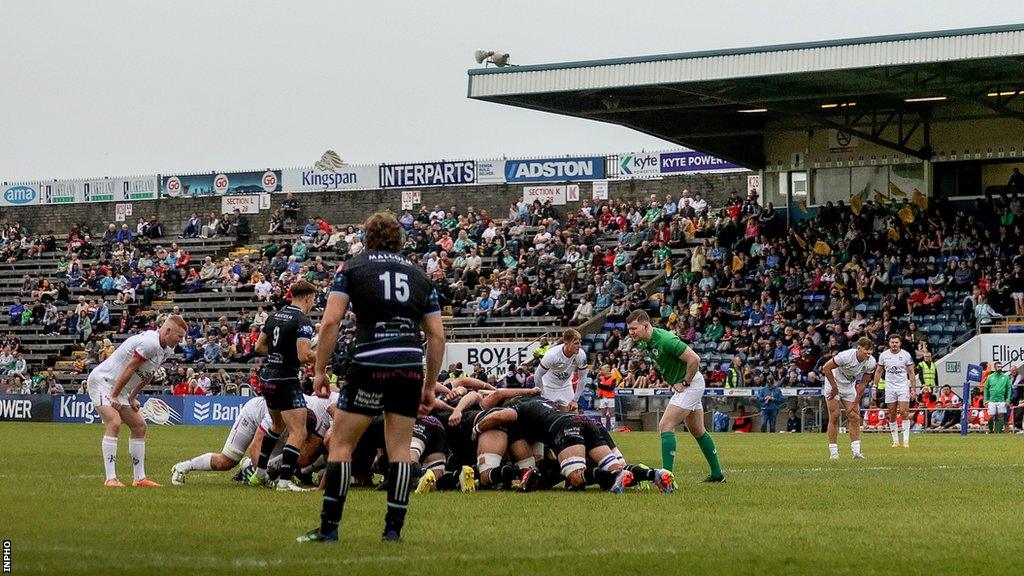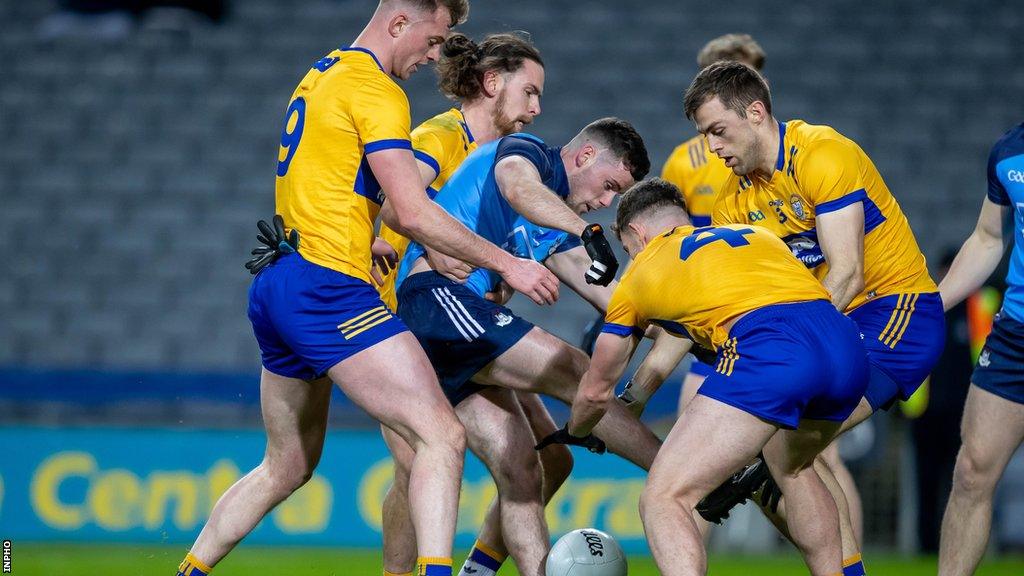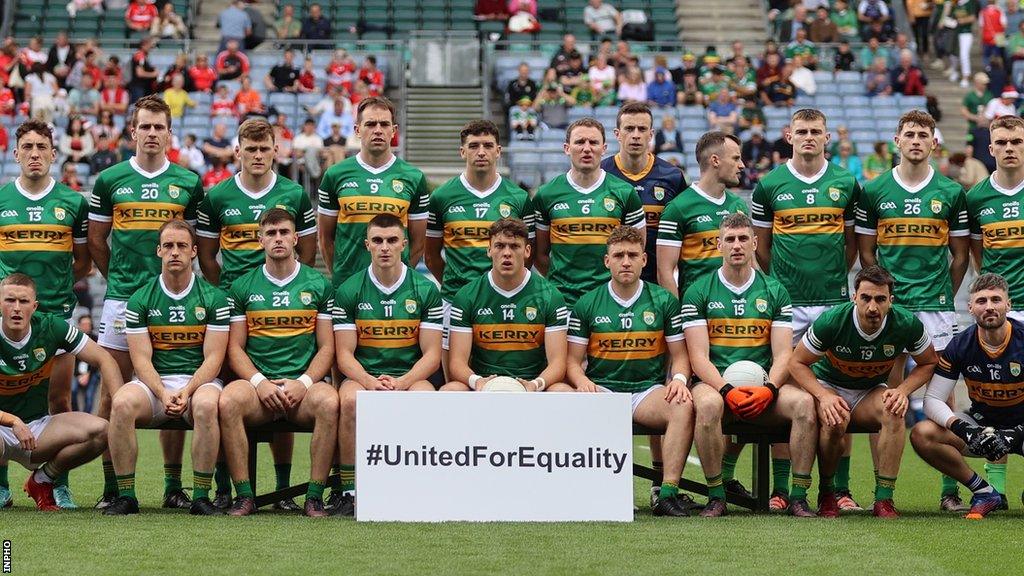GAA annual report: DG Tom Ryan backs debate on opening GAA grounds to other sports
- Published

Ulster played Glasgow in a rugby friendly at Breffni Park in October and Tom Ryan believes the GAA should consider further relaxing its rules over making venues to other sports
GAA director general Tom Ryan has said he supports adopting "a more liberal attitude" to making county grounds available to other sports.
Ryan's comments follow both Breffni Park and Pairc Ui Chaoimh recently hosting Ulster and Munster rugby games.
"It might be time to reconsider our current restrictions," said the GAA's director general in his annual report.
GAA rules allow for other sports to be given access to association venues for "events of national significance".
Ulster Rugby's friendly against Glasgow on 7 October - when development work on the new Kingspan Stadium pitch in Belfast was still ongoing - and Munster's high-profile friendly against Super Rugby side Crusaders, which took place at Pairc Ui Chaoimh last weekend, were deemed to have been in that category.
"Recent months have seen permission granted for a small number of games which possibly stretch that definition and have given me pause for thought," added the GAA director general.
"We are in an era where the construction of new grounds, the refurbishment of existing ones, and even the running costs of either pose an even greater challenge.
"Our future lies with new models of ownership, municipal facilities and shared grounds. These could well present our best opportunities for expansion."
GAA split season here to stay - Ryan
In a typically wide-ranging report, Ryan contends that the GAA's split-season model, instigated to ensure the successful co-existence of the inter-county and club games, is here to stay.
Ryan makes clear his view despite some misgivings in certain quarters about the battle for the Sam Maguire and Liam McCarthy Cups now being concluded by the end of July, and the belief that this leads the GAA's national profile to dip significantly in August and September before the club season reaches it's conclusion in the autumn.
"By and large the response to the new season and new inter-county competition structures has been positive," he adds.
"I think the momentum and sentiment is such that we will not be reverting to the old arrangement any time soon."

Tom Ryan is concerned that "mass defences" are damaging gaelic football's entertainment value
Ryan also addresses the widespread concerns about gaelic football's entertainment value and says rule changes will be required to make the game a better "spectacle".
"We cannot simply ignore the prevailing commentary around the attractiveness of Gaelic football," maintains the director general.
"Many games are characterised by slow, deliberate and cautious play and are dominated by mass defences.
"We've arrived at a place where the game is devoid of risk-taking and individual instances of skills are at a premium. Yet these are the very things that foster in us all our initial love of the game."
Club payments need 'corrective action'
Ryan adds that "corrective action" also needs to be taken to deal with the proliferation of payments to club managers which he says is now largely a reality in the GAA.
"The failure is on the part of the Association in espousing one thing and doing the opposite.
"You might well argue that none of these are new issues, and you would be right. But a process of gradual but constant erosion has taken us quite a distance from where we would like to see ourselves."
The GAA director general criticises the Gaelic Players Association's tactics "in staging protests" at high-profile games which included players holding a 'United for Equality' banner prior to last July's All-Ireland Football semi-final between Kerry and Derry at Croke Park.

Both the Kerry and Derry teams posed in front of a GPA-organised United for Equality banner prior to last July's All-Ireland Football semi-final at Croke Park
The protest was aimed at supporting inter-county ladies footballers and camogie players' campaign for a players' charter as well as minimum standards.
Ryan added that he "fervently believes that the future of Gaelic games lies in a single organisation governing all of our codes", but said that such tactics could undermine momentum towards overall GAA integration.
The GAA director general pointedly added that the GAA's current recognition protocol with the GPA concludes at the end of 2024.
"It was disappointing to see during the year that player welfare for female players was allowed to be conflated with the responsibilities of the GAA and that the GPA chose to stage protests at some of our games to seek to influence the Ladies Associations with regards to charters for their codes."
Ryan condemns Troubles Legacy Bill
Ryan also makes clear the GAA's continuing support for the campaign to seek justice for the murder of Bellaghy GAA chairman Sean Brown in May 1997.
The GAA director general condemned the British Government's Legacy Bill which will end Troubles-related legal proceedings after it comes into effect from 1 May this year.
"It is a blunt instrument inflicted on people who deserve so much better," adds Ryan of the Legacy Bill.
"I believe that all right-mind people will offer their unwavering and unequivocal support to the Brown family and the Bellaghy club for the steadfast and dignified way that they have pursued the truth for more than two-and-a-half decades."